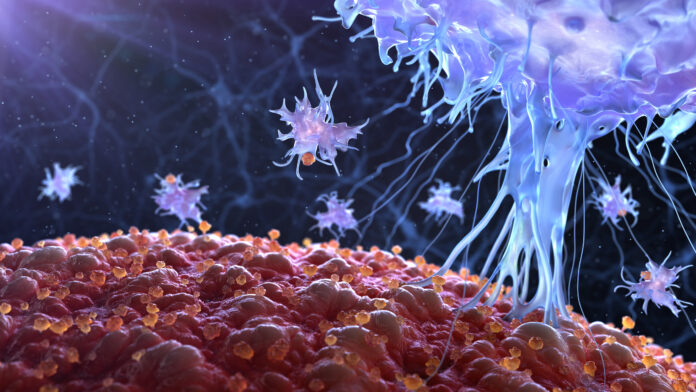
As it expands from oncology into autoimmune disease, Cullinan Therapeutics (formerly Cullinan Oncology) yesterday announced a $280 million private placement. The company’s lead compound is now CLN-978 for systemic lupus erythematosus (SLE), which it believes has the potential to be a safe, first-in-class, off-the-shelf, disease-modifying treatment in autoimmune diseases.
“Today’s announcements represent a major step forward for Cullinan Therapeutics…we believe that CLN-978 could offer a convenient modality and potentially disease-modifying treatment for patients with autoimmune diseases where current treatments often only address symptoms, rather than the underlying disease itself,” said Nadim Ahmed, CEO of Cullinan Therapeutics.
CLN-978 is a half-life extended, CD19xCD3 bispecific T cell engager construct, that triggers redirected lysis of CD19-expressing target cells in vitro and in vivo, according to the company release.
A small Cullinan-sponsored trial in patients with B cell non-Hodgkin lymphoma suggested the drug was very effective against CD19. While the company is not pursuing non-Hodgkin lymphoma studies further now, they say they will keep working on oncology.
Originally conceived as a method of eliminating cancerous B cells, B cell depletion therapies are now also being used against autoimmune diseases, including systemic lupus erythematosus and multiple sclerosis. CD19 expression occurs across all B lineage cells, including the short-lived plasma cells and plasmablasts that produce the pathogenic autoantibodies present in autoimmune conditions.
CLN-978 offers potential advantages to CD19 directed CAR T therapies, which have shown promise in such conditions, but have drawbacks that include convenience and manufacturing challenges. In April 2024, the Journal of Experimental Medicine published a Found in Translation article highlighting the potential advantages of CD19-directed T cell engagers over CD19 CAR-T cell engaging antibodies for the treatment of autoimmune diseases. The co-authors of this paper are Jennifer S. Michaelson, CSO at Cullinan Oncology, and Patrick A. Baeuerle, scientific advisor to Cullinan Oncology and honorary professor in immunology at Ludwig Maximilians University Munich.
Cullinan’s preliminary study in B cell non-Hodgkin lymphoma showed that CLN-978 can deplete peripheral B cells and demonstrate clinical activity at a favorable safety profile when the drug was administered subcutaneously once weekly. Two of the three patients in the study experienced objective clinical benefit and one showed a complete response. Of the two patients with detectable B cells at baseline, both experienced rapid, deep, and sustained B cell depletion after administration of CLN-978.
Cullinan says it plans to submit an investigational new drug application for CLN-978 in SLE in the third quarter of 2024 and is also planning for future development in other autoimmune diseases.
The CDC estimates the prevalence of SLE in the U.S. to be approximately 160,000 to 320,000 cases. Currently available treatments do not routinely induce treatment-free remission, and most patients require lifelong immunosuppression that treats symptoms without modifying the course of disease.













